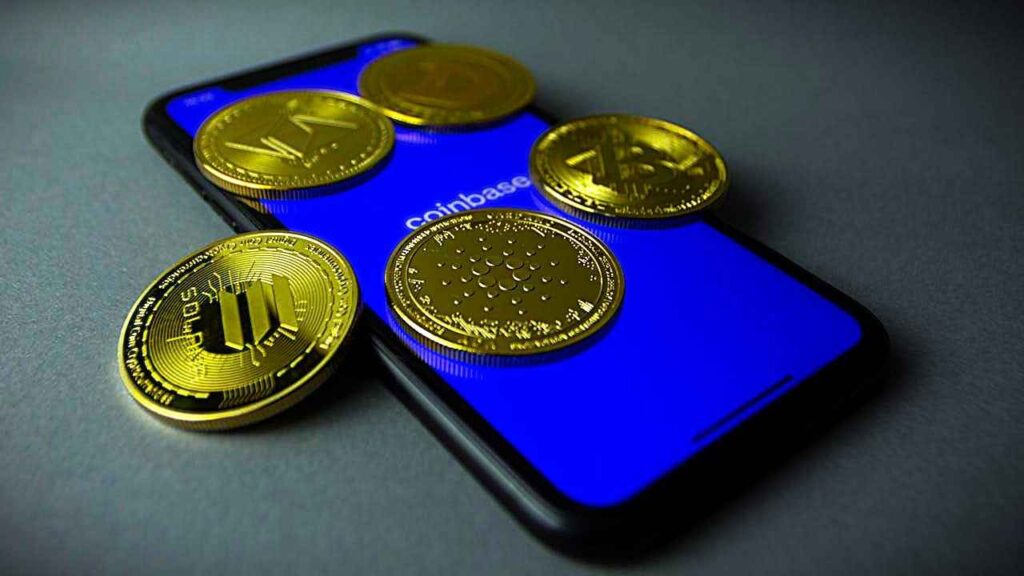Coinbase, the largest cryptocurrency exchange in the United States, has just launched a new wrapped Bitcoin token called cbBTC, making waves in the decentralized finance (DeFi) space. Built on the Solana blockchain, cbBTC offers users a reliable, one-to-one pegged asset with Bitcoin, allowing them to participate in Solana’s rapidly expanding DeFi ecosystem. With this new token, Coinbase joins the ranks of other wrapped Bitcoin projects, offering crypto enthusiasts more ways to use their Bitcoin in DeFi applications. So, what makes cbBTC special, and how will it impact the broader crypto landscape? Let’s take a closer look at Coinbase’s new wrapped Bitcoin, its integration with Solana, and the future of Bitcoin in DeFi.

Coinbase’s cbBTC brings Bitcoin into the fast lane of Solana’s DeFi ecosystem, offering users a powerful combination of speed, low fees, and seamless integration.

What Is cbBTC, and Why Is It Important?
cbBTC, or Coinbase Wrapped Bitcoin, is a wrapped version of Bitcoin that allows users to access the liquidity and functionality of Bitcoin on the Solana blockchain. For those unfamiliar with the concept, a wrapped token is a digital asset pegged to the value of another cryptocurrency—in this case, Bitcoin. Each cbBTC token represents one Bitcoin, ensuring that its value remains stable and equivalent to Bitcoin itself. This one-to-one pegging is crucial for users who want to utilize their Bitcoin in decentralized finance applications while preserving its value.
So, why is cbBTC significant? Coinbase’s entry into the wrapped Bitcoin market is a big deal for several reasons. First, it provides Bitcoin holders with new opportunities to participate in DeFi, a rapidly growing sector of the cryptocurrency market. DeFi allows users to lend, borrow, trade, and earn interest on their assets without the need for traditional financial institutions. By introducing cbBTC on Solana, Coinbase is opening the door for Bitcoin holders to take advantage of the fast and low-cost transactions offered by Solana’s blockchain, further expanding the utility of Bitcoin in the DeFi space.
Coinbase’s choice to launch cbBTC on Solana is also notable. Solana has become a popular blockchain for DeFi applications due to its high-speed transaction capabilities and low fees, making it an ideal platform for projects like cbBTC. As Solana continues to grow in popularity, the integration of cbBTC is expected to boost its ecosystem even further, attracting more users and liquidity to the platform.
DeFi Platforms Embrace cbBTC Integration
The launch of cbBTC on Solana has already gained significant traction, with several major Solana-based DeFi platforms integrating the token into their services. These platforms include well-known names such as Jupiter, Meteora, Kamino Finance, Raydium, Phoenix, Jito, and Drift. Each of these platforms plays a vital role in the Solana DeFi ecosystem, offering services like decentralized exchanges, liquidity provision, and yield optimization.
Among these platforms, Kamino Finance has set ambitious goals for cbBTC adoption, aiming to become one of the largest venues for cbBTC transactions in the DeFi space. By providing users with a seamless experience for trading and managing their wrapped Bitcoin, Kamino Finance hopes to establish itself as a central hub for cbBTC activity. As more platforms integrate cbBTC, its liquidity and usability across Solana’s DeFi network are expected to grow, further cementing its position as a key asset in the DeFi landscape.
The integration of cbBTC into these platforms also enhances the options available to Bitcoin holders looking to diversify their DeFi activities. Instead of relying solely on Ethereum-based wrapped Bitcoin tokens like WBTC (Wrapped Bitcoin), users now have an alternative with cbBTC on Solana. This not only increases competition in the wrapped Bitcoin market but also offers users more flexibility in choosing which blockchain they want to use for their DeFi activities.
cbBTC vs. Other Wrapped Bitcoin Tokens
With the introduction of cbBTC, Coinbase is entering a space that already includes several other wrapped Bitcoin tokens. Some of the most notable competitors include Threshold’s tBTC, Zeus Network’s zBTC, and Wormhole’s WBTC. Each of these tokens provides users with a way to bring Bitcoin’s value into other blockchain ecosystems, but there are key differences between them.
For example, WBTC is the most established wrapped Bitcoin token, with a market capitalization of over $11 billion across multiple blockchains, including Ethereum. It has been widely adopted in the DeFi space and is often the go-to choice for users looking to use Bitcoin on Ethereum-based platforms. However, Ethereum’s high gas fees and slower transaction speeds can make using WBTC expensive and less efficient for smaller transactions.
In contrast, cbBTC offers users the advantage of being built on Solana, a blockchain known for its speed and low fees. This makes cbBTC an attractive option for those who want to avoid the costs and delays associated with Ethereum. Additionally, while cbBTC’s market cap is still growing (currently sitting at over $1 billion), it has the potential to rival WBTC as more users adopt it on Solana and more platforms integrate the token into their services.
The competition between wrapped Bitcoin tokens is ultimately beneficial for users, as it encourages innovation and provides more options for utilizing Bitcoin in DeFi. As cbBTC continues to gain traction, it will be interesting to see how it competes with other wrapped Bitcoin projects and whether it can carve out a significant share of the market.
Final Thoughts: The Future of Bitcoin in DeFi
The launch of cbBTC marks an exciting new chapter for Bitcoin’s integration into decentralized finance. By bringing wrapped Bitcoin to Solana, Coinbase is expanding the ways in which Bitcoin can be used within DeFi, offering users access to faster and cheaper transactions than those available on Ethereum. The growing list of platforms integrating cbBTC, combined with Coinbase’s reputation as a trusted and secure exchange, makes this new token an attractive option for Bitcoin holders looking to explore DeFi opportunities.
As cbBTC gains momentum, it has the potential to become a major player in the wrapped Bitcoin market, offering competition to established tokens like WBTC. The success of cbBTC will depend on how quickly it can grow its user base and liquidity, but with strong support from Solana’s DeFi platforms and the backing of Coinbase, its future looks promising.
For Bitcoin holders, cbBTC represents a new opportunity to participate in the DeFi revolution, using their Bitcoin in innovative ways to earn yield, trade, and provide liquidity. With the DeFi space continuing to evolve, wrapped Bitcoin tokens like cbBTC will play a crucial role in unlocking the full potential of Bitcoin within decentralized finance.





